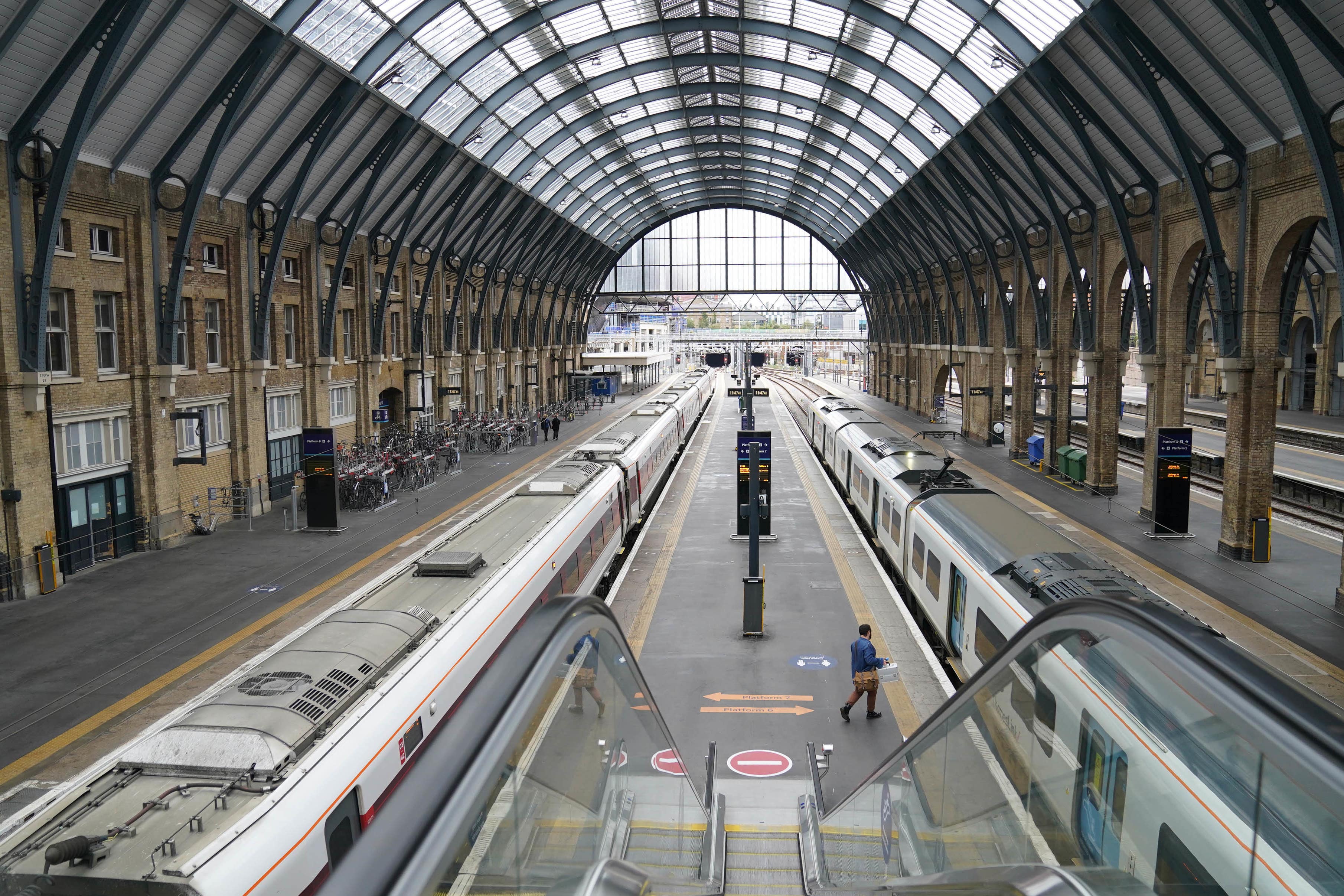Third rail strike in a week leaves 20% of regular services running
More than 40,000 members of the Rail, Maritime and Transport union have walked out in a long-running dispute.

Your support helps us to tell the story
From reproductive rights to climate change to Big Tech, The Independent is on the ground when the story is developing. Whether it's investigating the financials of Elon Musk's pro-Trump PAC or producing our latest documentary, 'The A Word', which shines a light on the American women fighting for reproductive rights, we know how important it is to parse out the facts from the messaging.
At such a critical moment in US history, we need reporters on the ground. Your donation allows us to keep sending journalists to speak to both sides of the story.
The Independent is trusted by Americans across the entire political spectrum. And unlike many other quality news outlets, we choose not to lock Americans out of our reporting and analysis with paywalls. We believe quality journalism should be available to everyone, paid for by those who can afford it.
Your support makes all the difference.Rail passengers are facing travel chaos for the third time this week as strike action leaves just 20% of regular services running across the country.
More than 40,000 members of the Rail, Maritime and Transport (RMT) union have walked out in a long-running dispute, with boss Mick Lynch accusing the Government of making unrealistic proposals.
“If we gave up we would lose everything that we’ve negotiated over the decades and we’re not prepared to do that,” he told the PA news agency.
“We will be in this for as long as it takes.”
Around half of the network will be closed all day and trains are only operating until 6.30pm.
Passengers have been urged to “only travel by train if absolutely necessary”, with services expected to return later than normal on Sunday.
Thousands of back-up workers have been drafted in to limit disruption, but only a fifth of normal services are running.
It comes despite Anne-Marie Trevelyan, who replaced Grant Shapps as Transport Secretary last month, saying there was a “deal to be done” with the unions.
In a speech to the Conservative Party conference, she called for “compromise” and “positive proposals” to end the strikes.
Mr Lynch said Ms Trevelyan had “warmer words” than her predecessor but had failed to bring concrete proposals to the negotiating table.
Speaking from a picket line outside Euston station, he told PA: “We know that there’s a deal to be done but it’s whether the Government allows these (rail) companies to change their position.
“At the minute, they’re saying things that they know that we can’t accept.
“The companies know that we can’t accept – they say to me, we know you’re not going to accept this, but I’ve been told to say it.”
The Rail Delivery Group, which represents the rail companies, declined to comment on the allegations.
They had to go out and print £65 billion to prop up the bond market. But they want to blame railway workers for what’s going on in the country
The Department for Transport said in a statement: “For the third time this week, and second weekend in a row, we face disruption and disarray on our railways.
“Weekend rail travel has been on the rise since the pandemic as people travel to support their favourite sports teams, meet loved ones or go to events. These plans are all now jeopardised and our economy is damaged as a result.
“Our railway is in desperate need of modernisation but all strikes will do is punish the very people unions claim to stand up for and push passengers further away.
“We urge union bosses to reconsider this divisive action and instead work with their employers, not against them, to agree a new way forward.”
Three strikes have taken place so far in October, with the others being held on Saturday 1 and Wednesday 5.
Mr Lynch, who was criticised by Liz Truss as being part of an “anti-growth coalition”, also accused the Prime Minister of mangling the economy.
“She seems to be an incompetent – her incompetence is only matched by her ego, and the same can be said for (Chancellor) Kwasi Kwarteng,” he said.
“They’re saying that we’re an anti-growth coalition, they had to go out and print £65 billion to prop up the bond market. But they want to blame railway workers for what’s going on in the country.